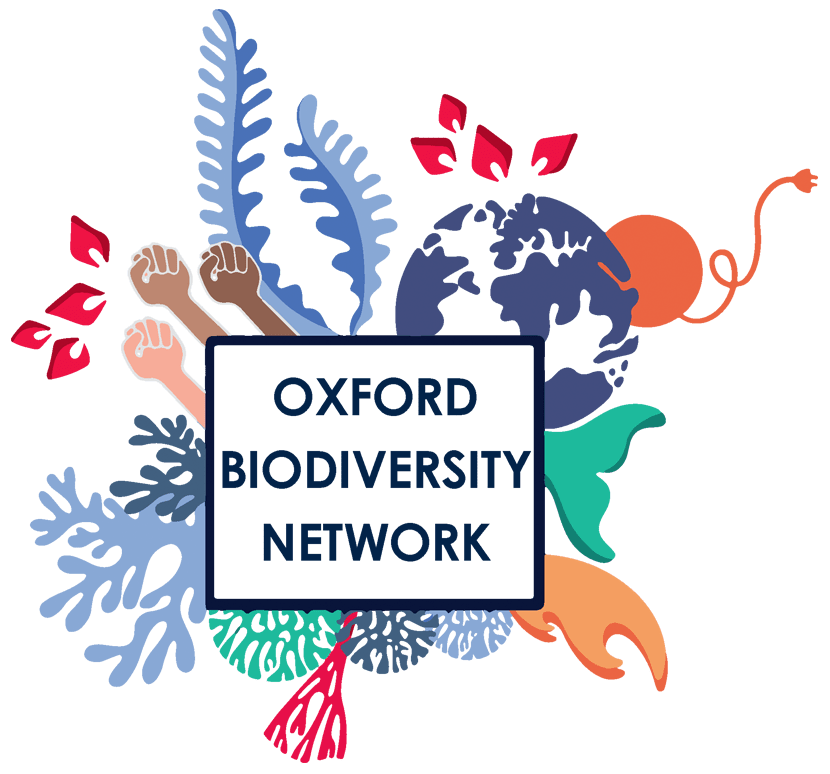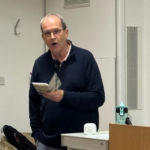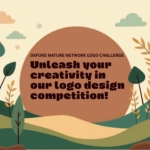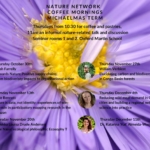Bridging Worlds: Reflections on the role of academia in addressing the biodiversity crisis
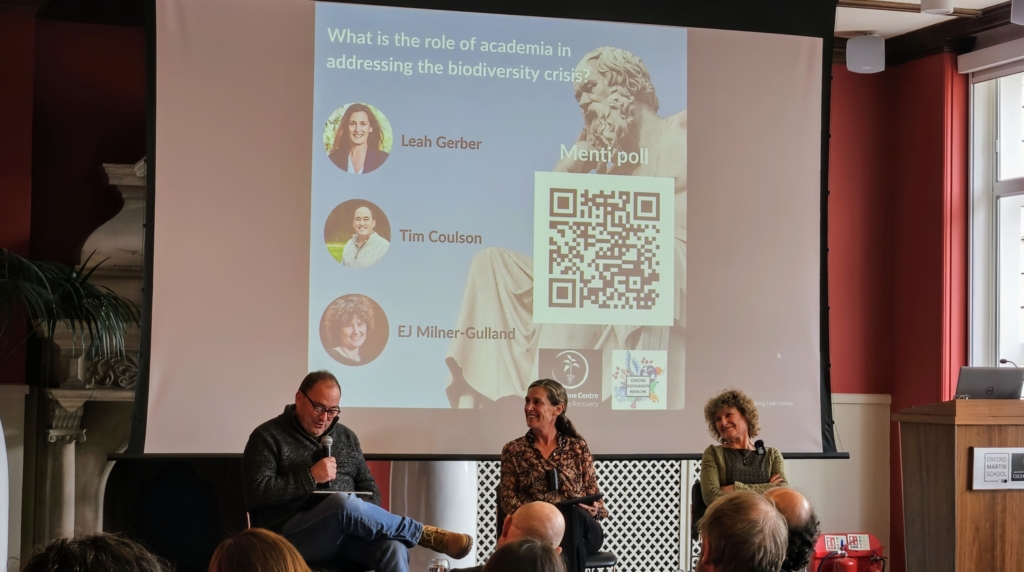
In a world facing accelerating biodiversity loss, Oxford Martin Visiting Fellow Leah Gerber hosted a panel conversation that brought together different voices focused on the role of academia in conservation.
This grew from a January talk on Understanding pathways of knowledge to action in biodiversity conservation and a February talk about knowledge production for decision-making in conservation. Subsequent conversations with the Oxford Biodiversity network about how academia, a community concerned with the pursuit of research, education, and scholarship, can meaningfully contribute to the protection of biodiversity underscored the surprising interest in digging deeper into these questions. Along with Lily Xu, Leverhulme Centre for Nature Recovery, Hannah Nicholas, Cascade, Caitlin Hafferty, Leverhulme Centre for Nature Recovery and Oxford Policy Engagement Network, Tanaya Nair, The Oxford Ecosystems Lab, Environmental Change Institute, Mark Hirons, Agile Initiative and Lucy Radford, ICCS, Leah Gerber organized a conversation with EJ Milner-Gulland and Tim Coulson as panelists.
The event was not just a discussion, but a fascinating demonstration of what happens when diverse knowledge systems, values, and perspectives are brought into open, and sometimes uncomfortable, dialogue.
Common Ground: Urgency and integration
A strong current throughout the discussion was a general agreement on the urgent need for change. From the standpoint of ecological science, indigenous worldviews, or governance frameworks, the consensus was clear: the status quo isn’t working. Biodiversity continues to decline despite decades of research, policy, and funding.
There was also widespread agreement that integrating Indigenous knowledge into conservation is essential, not as a symbolic gesture, but as a transformative practice. Indigenous knowledge was emphasized as a living, evolving system offering adaptive, place-based solutions rooted in deep relationality with land, species, and stewardship.
This integration goes hand in hand with a broader call for interdisciplinarity. Conservation science, the panelists argued, must break free from narrow disciplinary silos and embrace social science, governance, and cultural values to address today’s environmental challenges.
Tensions and candid disagreement
Our conversation was not free of friction. One point of visible tension was the role of academia. While some emphasized the importance of “science for discovery,” rooted in long-term curiosity-driven research, others challenged this, questioning whether curiosity can remain the priority when species are vanishing and systems are collapsing. One attendee noted, “It takes a fairly substantial degree of privilege to prioritize discovery over impact”.
Another debate centered around human-wildlife coexistence. A comment that Africa was the only region where humans coexisted with megafauna was met with pushback, with several participants highlighting the thriving coexistence of 1.5 billion people and wildlife across the continent as evidence of possibility, not exception.
Some participants expressed frustration at how some indigenous communities (e.g., Aboriginal Australians) are still portrayed in conservation discourse as agents of destruction rather than as protectors of biodiversity with tens of thousands of years of stewardship. “Let’s flip the narrative,” one urged, emphasizing that the most significant biodiversity losses occurred in the 200 years following colonization, not before this time.
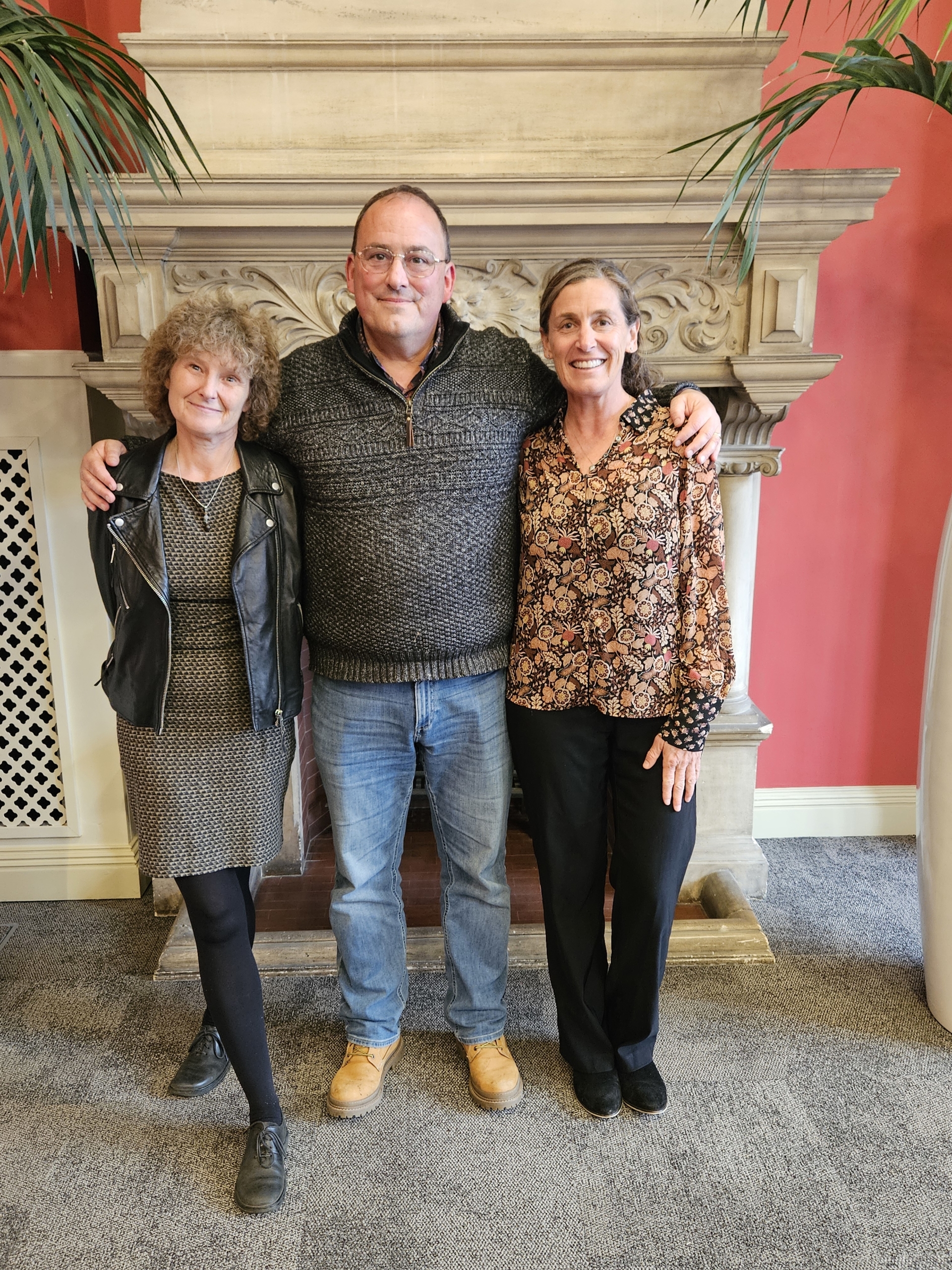 Themes That Emerged
Themes That Emerged
Several resonant themes surfaced:
Decolonizing Conservation: The conversation underscored the urgency of confronting colonial legacies in conservation—rethinking narratives, rebalancing authority, and integrating Indigenous systems as equal, not auxiliary.
Academic Constraints: The influence of funders, the “publish or perish” model, and the disconnect between research outputs and real-world impact were seen as major challenges to meaningful academic engagement in biodiversity solutions.
Markets and Innovation: Some participants suggested that focusing on consumer behavior and interest could be as impactful as policy or NGO work, highlighting alternative pathways for impactful work.
Relational Approaches: Indigenous knowledge systems offer a fundamentally different way of relating to land – through social constructs, cosmologies, and ethics that emphasize reciprocity and resilience. This way of thinking, as one participant shared, is not to take all responsibility for fixing the problem, but to offer relational complexity that’s missing in dominant paradigms.
Looking ahead: Why these conversations matter
What made this event so compelling was its commitment to honesty – not just synergy, but true engagement with disagreement. That’s where transformation begins.
The biodiversity crisis cannot be solved in isolation. It demands complex, interdisciplinary, and intercultural conversations. As one participant noted, “To say that Indigenous knowledge has no place in the modern world is to say that Indigenous people have no place in the modern world”.
This event reminded us that conservation isn’t just a technical challenge – it’s a relational one. And like any relationship, it requires listening, trust-building, humility, and the courage to maintain an open mind when facing diverging viewpoints.
Watch the discussion on our Youtube channel here
